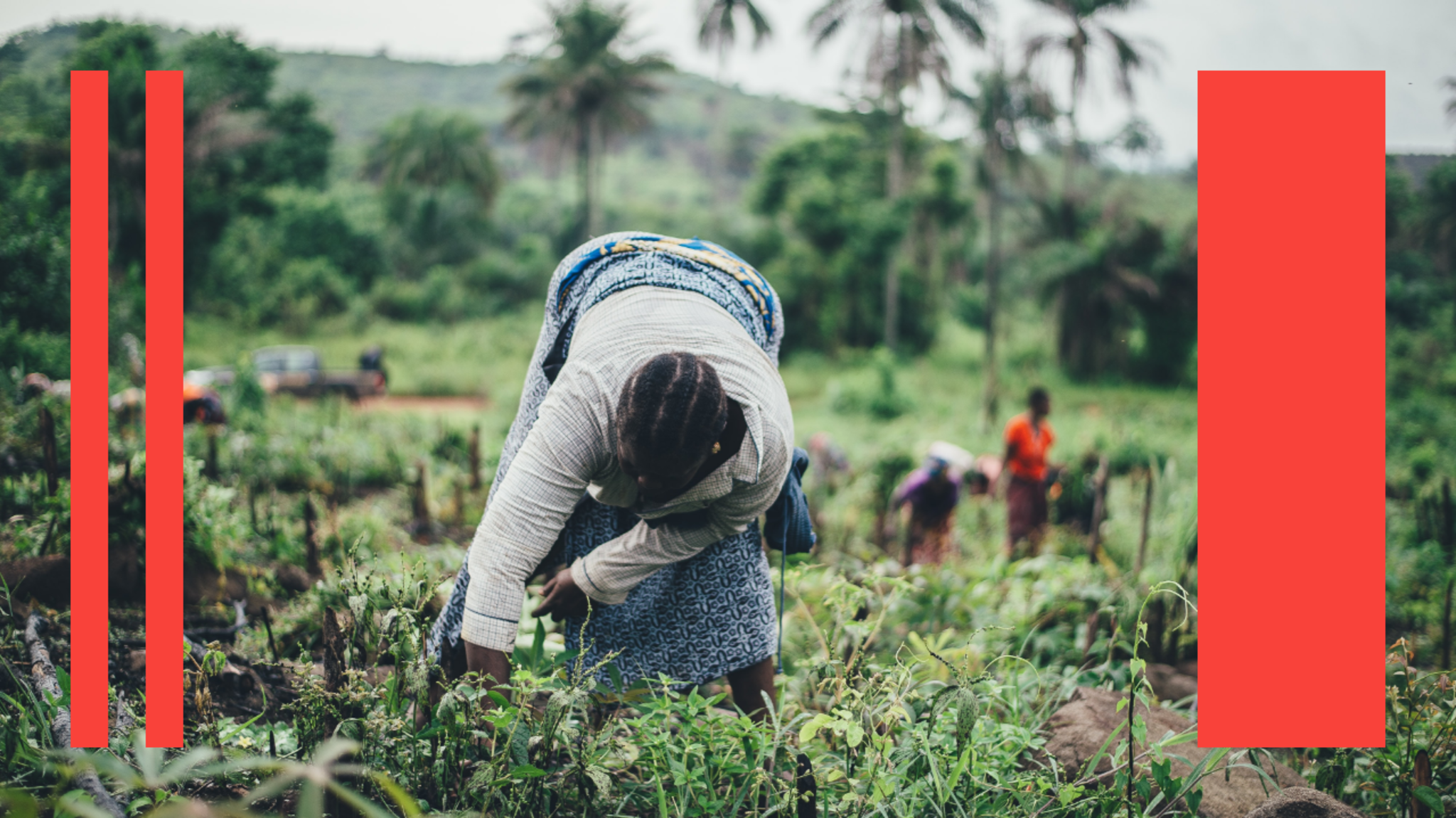Climate Crisis
Expanding the role of African farmers
85% of agricultural output across Africa is produced by small-holders. What do they need to simultaneously maintain ecological balance and sustain a continent?
The need to rethink innovation in relation to agriculture is imperative. Approximately 85% of total agricultural output across the African continent is produced by small-holder farmers, yet there remains a persistent imagining of African farming practices as static, inefficient and vulnerable.
These ideas have in turn supported a modernising agenda whereby African agriculture is repeatedly required to undergo wholesale re-design to accommodate a host of technical inputs, market infrastructures and industrial farming practices. With concerns surrounding continued climate change and associated challenges of food security, calls to increase technological innovation and commercial infrastructures are becoming ever stronger.
Over the past year, the Institute for Global Prosperity has been co-ordinating a programme called ‘Prosperity and Innovation in the Past and Future of Farming in Africa’ (PIPFA): a partnership network with the University of Eldoret, Elgeyo-Marakwet County Government and the East African Herbarium, the UN Environment Programme, the Royal Botanic Gardens at Kew and Pesticide Action Network UK.
Forming a dynamic team of citizens, academics, scientists and policy makers, this partnership aims to reframe how we empower smallholder farmers in Eastern Africa. By drawing upon original empirical research in Elgeyo-Marakwet County, Kenya, we have been exploring how to reconceptualise the role of farmers as the drivers of agronomic innovation.
Above: Women farming cassava in Sierra Leone. Photo by Annie Spratt
A smallholder farmer attends to a newly born calf. Photo by Samuel Lunn-Rockliffe
“The dynamism of smallholder knowledge, practice and innovation is astonishing and we are continuing to grow this rich knowledge store.”
PIPFA aims to develop models for the designing new food systems in ways that empower smallholder livelihoods and regenerate local ecologies. The urgency to do so stems from the fact that current agricultural systems are eroding environments and failing to deliver sustainable prosperity in inclusive and equitable ways.
The endeavour to redesign prosperous agricultural futures must thus foreground local knowledge, practice and innovation. This framework is particularly pertinent for the wider development industry, a sector that has a rich history of innovating large-scale transformations of global food systems yet has repeatedly failed to engage with the practice and lived realities of farming livelihoods on the ground.
PIPFA’s proposal for new farmer-centred frameworks of agricultural design build from a portfolio of ongoing work with innovative, self-defined ‘digital farmers’ in Elgeyo-Marakwet County. With these communities, we have co-designed research which places contemporary farming practices in a historical context and explores the ways in which smallholders have improvised in a creative way.
An archive of historic and contemporary crop varieties is being built in conjunction with qualitative interviews and quantitative information on cropping practices. Thus far 23 landrace varieties of finger millet and sorghum have been documented alongside over 400 unique cropping combinations of 31 crop types. The dynamism of smallholder knowledge, practice and innovation is astonishing and we are continuing to grow this rich knowledge store.
Above: Citizen scientists interviewing a local farmer about their cropping practices. Photo by Samuel Lunn-Rockliffe
Above: A smallholder farmer attends to his seedlings. Photo by Samuel Lunn- Rockliffe
A primary observation from the outcomes of this work is that farming is the result of a creative interplay between a myriad of historic trajectories. Smallholders are just as likely to plant their field with an endemic genetically distinct land-race of sorghum in one season as they are to plant the most ‘modern’ hybrid maize in the next.
Their agronomic practices are as equally likely to be influenced by their great grandparents as by the Gates Foundation, the Fairtrade movement, or the Kenyan TV show Shamba Shapeup (a make-over show that informs farmers and entertains them at the same time.) These ongoing processes of experimentation, are a clear demonstration that farmers are at the nexus of innovation.
Results from PIPFA have fed into a series of partner workshops and are being used to enhance collaborative practices, knowledge bases and research capacities in ways that more readily centre farmers as the focal point of innovation. More specifically, the project has engaged in policy dialogue, undertaking a total of five strategic webinar workshops to identify policy entry points to support and enhance farming innovation and knowledge. These discussions fed into a major report on Regenerative Agriculture published last year and are informing the co-production of policy documents.
View of the Kerio Valley from the highlands of Elgeyo Marakwet. Photo by Samuel Lunn-Rockliffe
The PIPFA partnership has also provided the core foundations for an ongoing project entitled ‘Cultivating through Crises: Empowering African Smallholders Through Histories of Creative Emergency Response’ (CCEASH). With the onset of the Covid-19 pandemic coupled with droughts, severe flash flooding and the worst desert locust outbreak for 70 years, CCEASH will urgently explore how farmers innovate within the context of these multiple crises. The project will build a historiographical account of smallholder emergency response with the aim of foregrounding local agronomic innovations within times of crisis, empowering local knowledge and practice.
These innovations in which the IGP, and more broadly The Bartlett, is playing a leading role are paving the way for robust, informed policy initiatives to support long-term farmer-led agriculture that maintains balanced ecosystems. More broadly, this work is a crucial component of our wider research ambitions to build new pathways to prosperous livelihoods.
